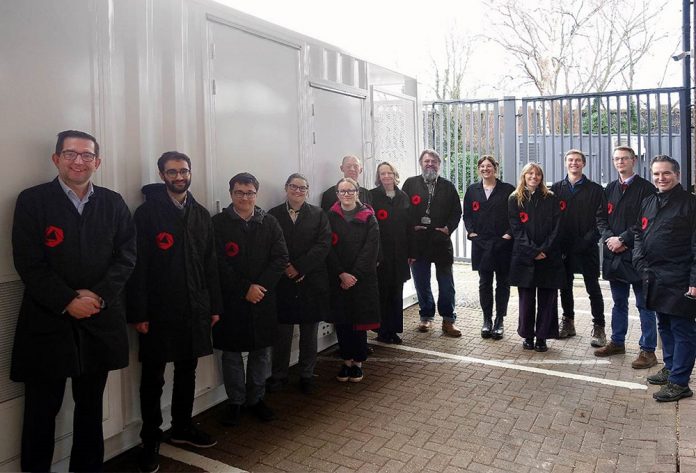A team from the Department for Energy Security and Net Zero visited Levidian’s Technology Centre in Cambridge to learn about their world-first hydrogen project with the UK’s largest listed water company, United Utilities.
Levidian and United Utilities are working to decarbonise wastewater treatment by deploying Levidian’s patented LOOP technology to capture carbon and produce graphene and hydrogen from biogas as a fully sustainable feedstock.
In a breakthrough for the water industry, the project will help address two key issues facing the sector – how to process wastewater in a way that reduces emissions while minimising the financial burden of wastewater treatment.
Levidian’s LOOP technology will enable United Utilities to produce their own on-site hydrogen for use in its fleet of heavy-duty vehicles. The companies will also be exploring potential use cases for the graphene, which can be used to enhance a variety of products including batteries, construction materials and coatings.
This pioneering project has received £3 million of funding from the Net Zero Innovation Portfolio (NZIP)’s Hydrogen BECCS Innovation Programme, which supports technologies that can produce hydrogen from biogenic feedstocks and be combined with carbon capture.
Lisa Mansell, Chief Engineer (Innovation) at United Utilities said: “This is a hugely exciting project for us, and the wider water sector, transforming something that has previously been a waste product into two high value products in the form of hydrogen and graphene.
“We’re looking forward to running our trial at our Manchester Bioresources Centre to prove the potential of the technology. If successful, we could then look to apply it at wastewater treatment sites across the North West.”
The unit is expected to save the emission of almost 50 tonnes of methane and produce around 10 tonnes of hydrogen each year.
Liverpool John Moores University will assess the potential usage of hydrogen within the Liverpool City Region as part of this project, and engineering service company Jacobs will provide expertise in carbon lifecycle assessment, social value analysis, and commercialisation.





